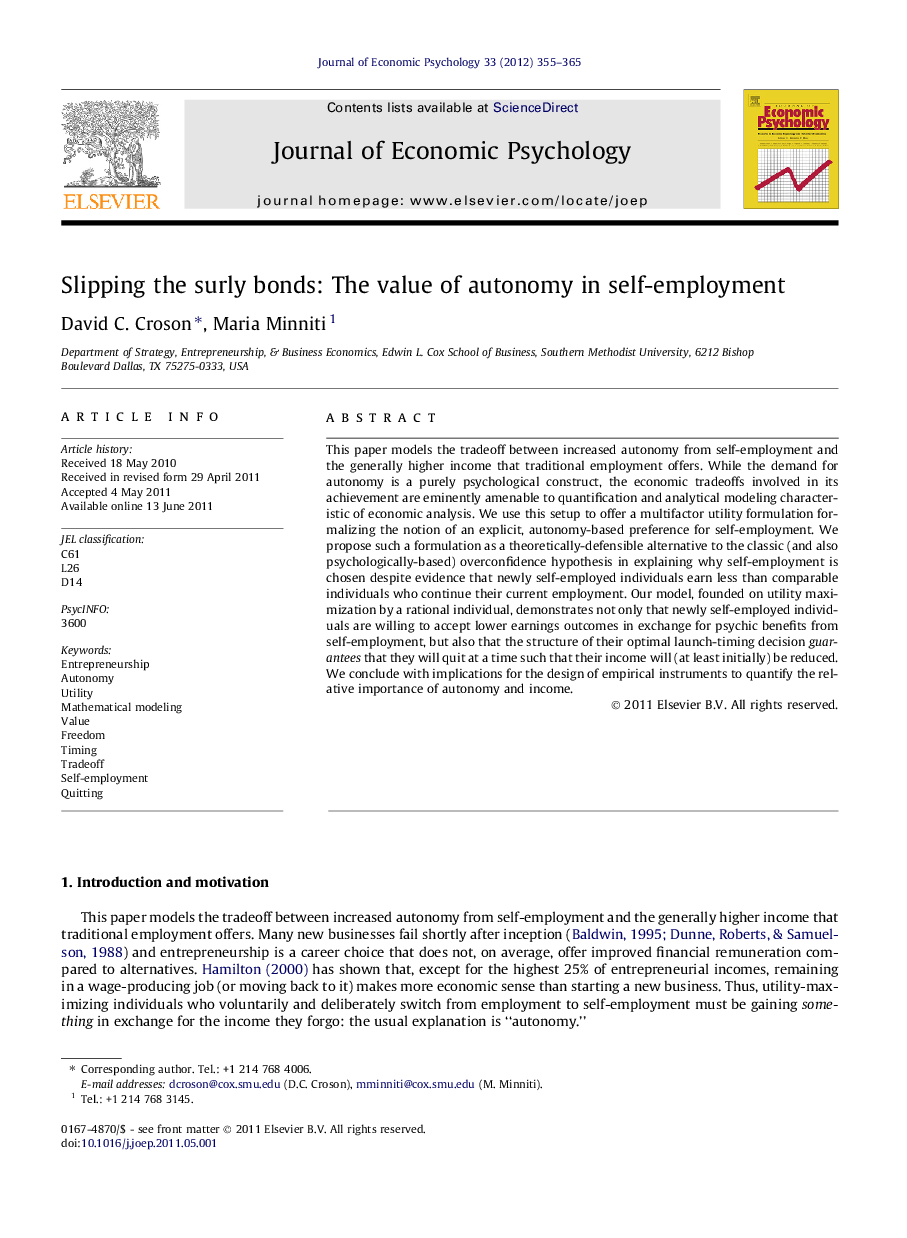| کد مقاله | کد نشریه | سال انتشار | مقاله انگلیسی | نسخه تمام متن |
|---|---|---|---|---|
| 885160 | 912662 | 2012 | 11 صفحه PDF | دانلود رایگان |

This paper models the tradeoff between increased autonomy from self-employment and the generally higher income that traditional employment offers. While the demand for autonomy is a purely psychological construct, the economic tradeoffs involved in its achievement are eminently amenable to quantification and analytical modeling characteristic of economic analysis. We use this setup to offer a multifactor utility formulation formalizing the notion of an explicit, autonomy-based preference for self-employment. We propose such a formulation as a theoretically-defensible alternative to the classic (and also psychologically-based) overconfidence hypothesis in explaining why self-employment is chosen despite evidence that newly self-employed individuals earn less than comparable individuals who continue their current employment. Our model, founded on utility maximization by a rational individual, demonstrates not only that newly self-employed individuals are willing to accept lower earnings outcomes in exchange for psychic benefits from self-employment, but also that the structure of their optimal launch-timing decision guarantees that they will quit at a time such that their income will (at least initially) be reduced. We conclude with implications for the design of empirical instruments to quantify the relative importance of autonomy and income.
► Earnings from self-employment are, on average, lower than those from employment.
► Some individuals may have an autonomy-based preference for self-employment.
► We model tradeoffs between autonomy from self-employment and higher wage-earnings.
► We show that optimal launch-timing decisions guarantee that income is reduced.
► We offer an alternative to claims that self-employment stems from overconfidence.
Journal: Journal of Economic Psychology - Volume 33, Issue 2, April 2012, Pages 355–365